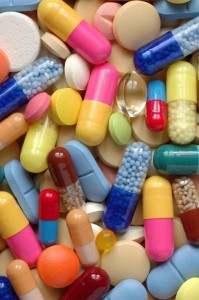 Eating a healthy diet is essential to having a healthy body. If you are a runner, you need to make sure that you are eating well and consuming the right amount of nutrients and vitamins to help fuel your body.
Eating a healthy diet is essential to having a healthy body. If you are a runner, you need to make sure that you are eating well and consuming the right amount of nutrients and vitamins to help fuel your body.
Below are a few of the essential vitamins that runners should be incorporating into their diets.
Vitamin B12
Vitamin B12 is a water-soluble vitamin that is involved in the formation of red blood cells. as well as being a a key role in the normal functioning of the brain and nervous system. The daily recommend amount is 2.4 micrograms.
Vitamin B12 is naturally found in animal products, including fish, meat, poultry, eggs, milk, and milk products.
Calcium
Calcium is required for vascular health, muscle function, nerve transmission and bone health. The daily recommend amount is 1,000 milligrams.
Calcium is naturally found in milk, yogurt, cheeses, as well as non-dairy sources like cabbage, kale, and broccoli.
Vitamin C
Vitamin C is a water-soluble vitamin that is required for the biosynthesis of collagen and is, also an antioxidant. The daily recommend amount is 90 milligrams for men and 75 milligrams for women.
Good food sources for vitamin C include peppers, kiwifruit, broccoli, strawberries, citrus fruits, tomatoes and potatoes.
Vitamin D
Vitamin D is a fat-soluble vitamin that promotes calcium absorption and is needed for bone growth. The daily recommend amount is 600 IU.
Fatty fish such as salmon, tuna, and mackerel, as well as egg yolks are among the best sources of vitamin D.
Vitamin E
Vitamin E helps your immune system fight against viruses and bacteria. Vitamin E is also a powerful anti-inflammatory antioxidant. The daily recommend amount is 15 milligrams.
Numerous foods provide vitamin E; such as nuts, seeds, and vegetable oils.
Iron
Iron is a mineral that is an essential component of hemoglobin, and is also necessary for the growth and development of normal cellular functions. The daily recommend amount is 8 milligrams for men and 18 milligrams for women.
The richest sources of iron is lean meats, seafood, nuts and beans.
Omega-3
Omega-3s have been shown to reduce inflammation and help in the process of tissue repair. The daily recommend amount is 1.6 milligrams for men and 18.1 milligrams for women.
The easiest way to increase your omega 3, is to consume cold-water fatty fish, such as salmon, mackerel, tuna, and sardines.
Eating a healthy diet is just part of a healthy lifestyle. Contact your health care practitioner for more information.


